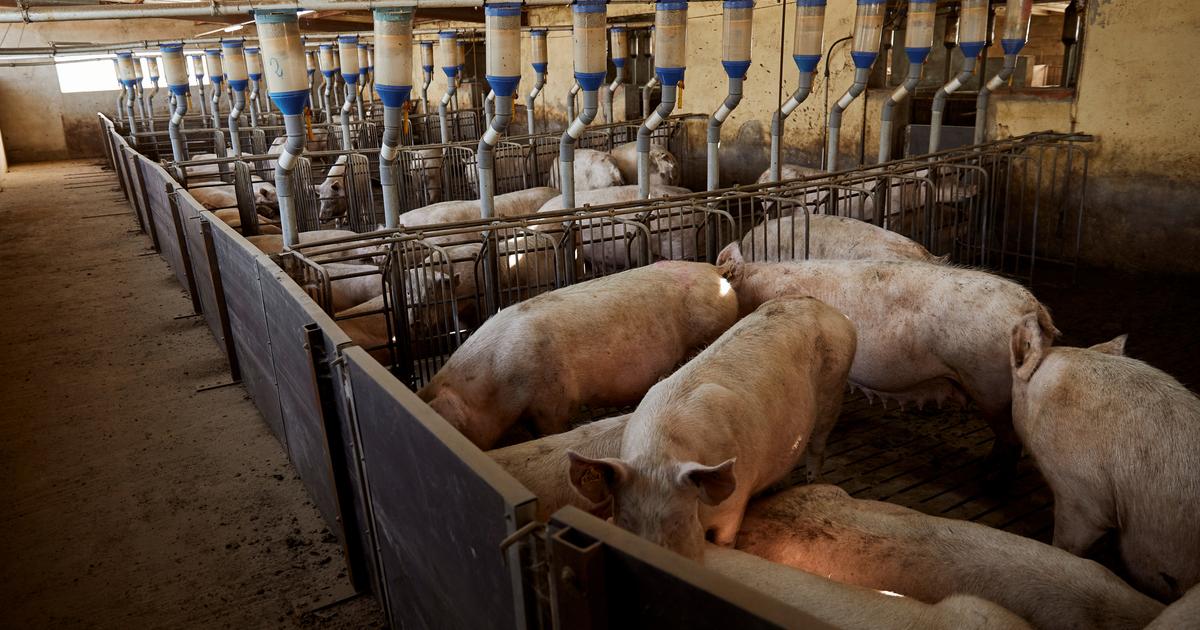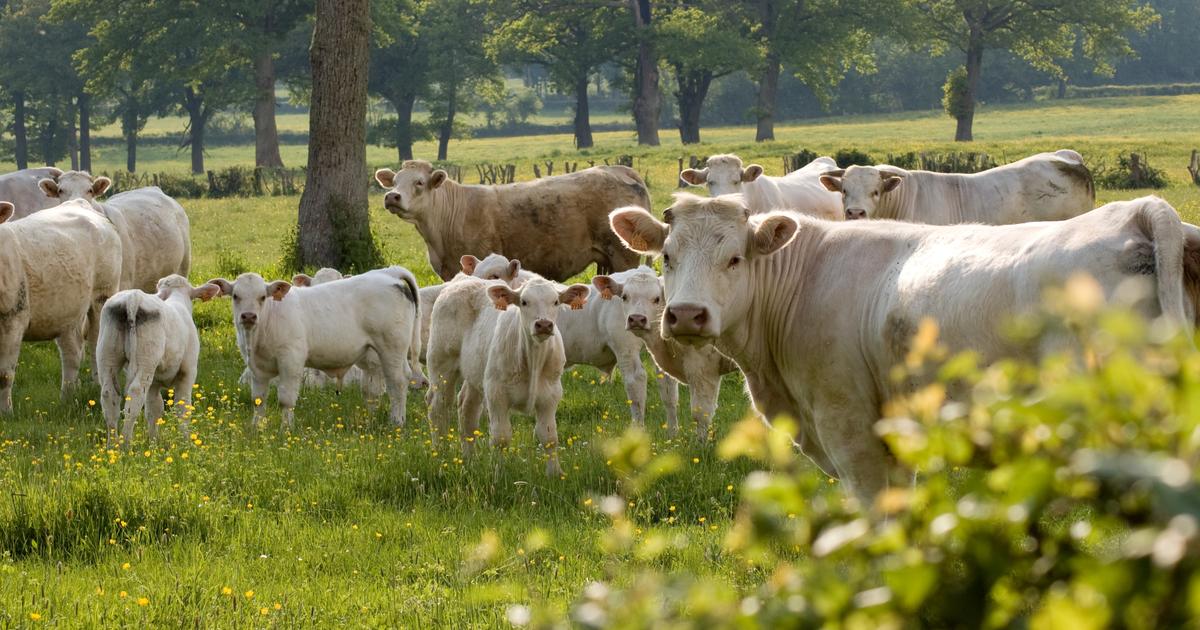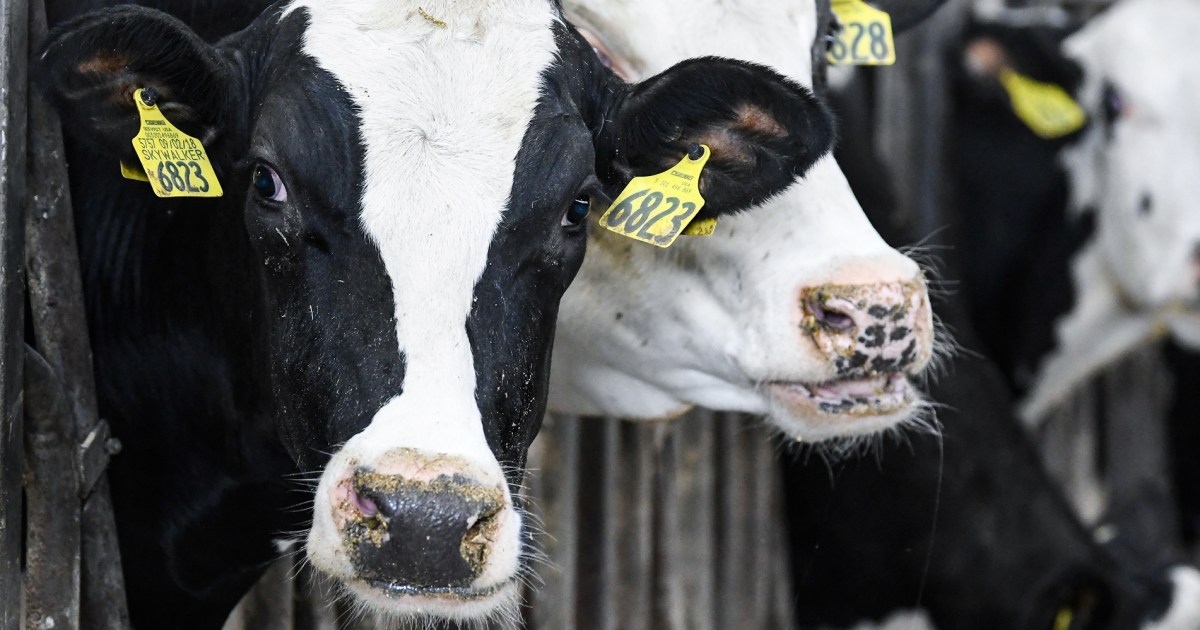Drama on a farm in the southern district of Weilheim-Schongau: Due to several cases of TBC, the entire herd of around 70 cows and cattle had to be killed.
District - Every slaughtered cow is examined for possible diseases during the so-called meat inspection.
For the
farmer who doesn't want to read his name in the newspaper, it's been a routine for years.
He built up his stock over decades, "the animals have always been on the farm for a very long time".
If he gave six cows a year to the butcher, it was already a lot.
There were never any problems.
Until recently the tuberculosis diagnosis of a slaughtered animal reached the farmer.
“I fell from the clouds,” he says.
But that should only be the beginning of the nightmare.
"Since bovine tuberculosis is a notifiable animal disease, the procedure in the event of a proven outbreak and the control measures are regulated by the state," says the head of the veterinary office, Jens Lewitzki.
"Treatment or vaccination attempts are not allowed in cattle."
TBC case on the farm: the veterinary office closed the operation immediately
The veterinary office immediately closed the operation.
Further investigations followed - with the tragic result that far more cows and cattle were infected with the disease.
That meant: "The population of around 70 animals had to be killed as part of the measures ordered," said Lewitzki.
Since then, the farmer has been racking his brains about how the epidemic got into his barn.
It will probably no longer be possible to clarify this.
“Cattle can be infected for months to years without the animals developing clinically recognizable markings.
This means that tuberculosis can go undetected for years through no fault of your own, ”says Lewitzki.
No restricted areas necessary
Germany has been officially free from bovine tuberculosis since July 1, 1996, announced the Veterinary Office. According to the definition of the European Union, this means that at least 99.9 percent of the cattle holdings in a country have not been found to have bovine tuberculosis for one year. The occurrence of the disease in individual cases does not endanger Germany's status as officially recognized free from bovine tuberculosis. "Export effects are therefore not up for discussion." Required measures always only apply to the company concerned. In terms of animal disease law, no restricted or surveillance areas (such as African swine fever) need to be set up in the event of a TB outbreak. "There are therefore no special protection requirements or even a ban on grazing cattle in the Weilheim-Schongau district",writes the veterinary office. Bovine tuberculosis was not a highly contagious disease. According to scientific knowledge, high amounts of pathogen appear to be necessary for transmission via contaminated feed (pasture).
In the past, red deer have repeatedly come under suspicion of transmitting TB.
Since 2000 there have been only four proven cases of bovine tuberculosis in the district: 2010, 2011, 2020 and the current one.
“In three cases, the Mycobacterium caprae, which occurs mainly in red deer, was isolated; in 2011, no isolation was carried out,” says Lewitzki.
However, almost any mammal can become infected with the pathogen, including wild animals such as deer, wild boar, badger, fox and also the raccoon.
After a TB outbreak in the dairy farm: Farmer is left with nothing
No matter where the disease originates from - the farmer is left with nothing. Not financially, according to the veterinary office there is a legal right to compensation for the animals from the Bavarian Animal Disease Fund. Thanks to insurance, the missing milk payment will also continue to be paid for three months on a transitional basis. “But every farmer is also a breeder. I've built up the business for over 30 years, never bought an additional animal, always only used my own offspring, the cows just suited me - that's over. "
The veterinary office gave him good support, praises the farmer, “I didn't feel left alone”.
The amount of work, such as disinfecting the stable over a large area, could have distracted him.
But at some point he has to decide how to continue.
Will he take over the entire portfolio of a farmer who has given up his job?
Or does he buy individual cows and start all over again from an early age?
“I can't say that yet,” says the farmer in frustration.
Schongau newsletter:
Everything from your region!
Our brand new Schongau newsletter informs you regularly about all the important stories from the Schongau region - including all the news about the corona crisis in your community.
Sign up here.










/cloudfront-eu-central-1.images.arcpublishing.com/prisa/2C5HI6YHNFHDLJSBNWHOIAS2AE.jpeg)




